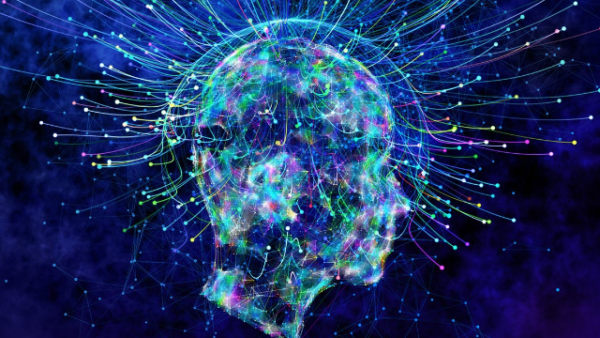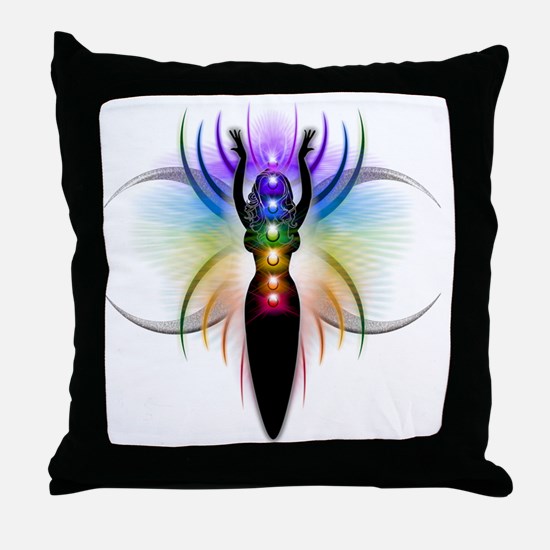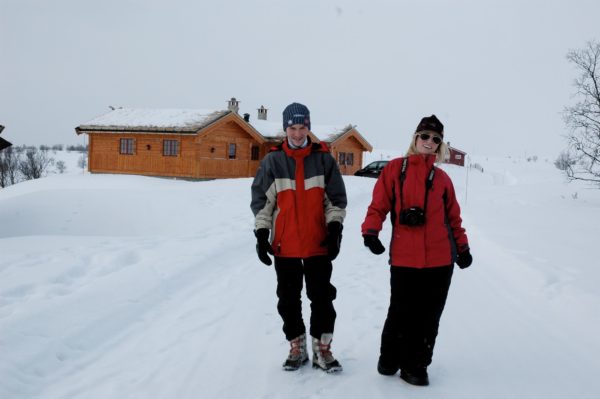The new findings in the Malaysian Airline incident are very interesting. Given the strong currents and winds, it may well have gone down near India and drifted southward. There is no reason for a plane to fly that far south and so far from land. We’ll see what happens! Meanwhile, let’s all pray for the families and hope that they have some sort of closure.
I also want to invite you all to purchase my book if you haven’t already. It’s 13 bucks well spent and will help our cause immensely. If you do, I hope you lend it out to those who you think might benefit from it. Thanks in advance!
Me: What is the difference between animal, plant and human consciousness, Erik? We’ll just start with the living.
Jamie (smiling): He just puts his hands together and, you know. (She rubs her hands together.)
Erik: Nada.
Me: Well, are they all self-aware, I guess?
Erik (sounding like he thinks I’m a complete idiot): Yes!
Me: What about inanimate objects like rocks, things that have never been animate.
(Like a wooden desk for example, which was obviously alive at some point.)
Erik: That’s a little different, so it really doesn’t maintain life the way we define it. It maintains energy, right?
Me: Okay.
Erik: And energy can hold information, but when I talk about life, I mean something that has a soul that needs to eat and produce energy itself to live and survive.
(Pause)
Jamie: He’s questioning how he should say that also in eating and surviving it shows growth, change of self or maintenance of self.
Me: Change on a biological level or change on a spiritual level?
Erik: Oh, I would say both on that one.
Jamie: He just meant change in general.
Erik: A rock shows change, right, because of its shape—in its erosion, in its growth and how it’s produced just like crystals are. They grow. There’s not necessarily a soul inside a crystal, but it’s made of energy and that energy has information, information of where it was formed, and it has a certain vibrational pattern, it can assist (This might be a typo. Maybe he said, “exist”?) with living, soulful items.
Jamie: Items?
We’re both baffled by his choice of words.
Me: I’m not an item!
(Pause)
Me: Well, hey, maybe we are items in that sense !
Jamie bursts out laughing.
Me: We’re an item!
Erik: Check your ass for a UPC label.
Me: Oh, geez. Okay.
We laugh.
Me: What about an inanimate object that used to be alive like my desk made of wood?
(Long pause)
Jamie (smiling): He’s taking a moment to grieve over the death of the wood that was used to create your desk.
Me: Oh, I feel so guilty now!
Jamie: He puts his hand over his heart and puts his head down.
Me: Aww.
Erik: Let’s just take a moment. But it’s true. It was once living, but now it’s not. It went through the process of death. The life force that was in the wood no longer is in that wood. It’s still within the roots or reincarnated back into the whole and then coming into the Earth in different ways. So, that wood is now considered inanimate, because it no longer contains the life force, but it still has the energy, the energy memory from the experience and energy knowledge from its entire life that it had when it was in the woods or in somebody’s backyard, wherever they snatched it. So you could—
(Short pause)
Jamie (to Erik): Yeah, you gotta change the words if you don’t mean it
Erik: You can go deep into meditation.
Jamie: He said, “When I say deep, I mean high,” and I go, ‘Yeah, you can’t do that. That’s confusing.’ When he says the use of meditation, he means above your awake state. You kind of rise above it. He holds his hands like (placing one hand palm down at the level of her chest) here’s your everyday awake state and you’re doing your routine work.
Erik: You meditate and you relax enough, you feel like you’re going deep or broad, but really you’re rising above it and getting broad. You can get to this space (Jamie places her hands like she’s holding something the size of a grapefruit) and you can connect with the energy that’s in your desk and pull information from the energy that’s in that desk.
Me: Interesting.
There I am again with my witty comebacks. Sigh.
Erik: How’s that for being crazy?
Me: Yeah, it’d make me feel crazy if I’m doing that and patting my desk and saying. ‘Aw, I love you, and I feel the memories of you being yanked up from the rainforest…” Nah, I’m kidding. It didn’t come from there.
Clearly I’m afraid that the green groups will be sending me hate emails.
Me: What about atoms and electrons and other particles? Do they even have a consciousness? They’re energy, so…
(Pause)
Me: I guess they do.
Erik: They do, but imagine some consciousness is like a storage unit, you know, and you got a key to it and you know that every time you go to that spot and unlock that, it’s going to be that energy that you put in there. It’s not seeking to be better or exchange information or to travel or morph—any of that. The subconscious is like gasoline. It’s powered to be, you could say faster? It’s reaching out; it wants more from other people or other experiences. It doesn’t have to be just directed to people.
(Pause)
Jamie: To me, I know maybe it’s because I’m not listening to the words. I’m just trying to repeat.
With spirits like Erik, she translates word after word instantaneously giving her no time to really listen and comprehend.
Jamie: But the pictures that he sends me make sense. You know how he talked about two different kinds of conscious energy like the one where we’re human like we are now, and it’s kind of in a box? That’s like this box that he was just talking about. There’s like a key to it.
Me: Mm hm.
Jamie: And so wherever you go into this box it’s the same kind of energy, but when you step out of that body, it’s a different kind of consciousness. It has different properties to it, but overall, it’s still about collecting or reaching for more knowledge, more experiences.
Me: Interesting. That makes sense. Okay, now, we talked about this before. How do microtubules—I’ll say for the audience that microtubules are very important in the cells [of our body] to maintain its structure and also to help with cell division. Erik, you talked about how they play a part in consciousness, how the soul is tethered to the body through these. Can you talk to me about that, and also tell me about how they release themselves in the process of our transition?
Erik: It’s like spring-loaded.
Me: Hm!
Erik: No, really. If you look at the tubes, you’ll see that it’s kind of made of rings of matter, almost like it’s spring-loaded.
(Pause)
Jamie (shaking her head, eyes closed): He’s showing me—I don’t know what they’re called—they’re these little pop things. You pull them and, poof, and the—
Me: Oh, for New Years Eve? That sort of thing?
Jamie: Yeah. Yeah. For celebrations and stuff.
Me: Okay. Uh huh.
Erik: That’s how it looks like when the soul is separating from the physical body when the physical body is dying, like when the soul was leaving your poor piece of wood that made your desk, Mom.
(He places both hands over his heart again and speaks with a grave tone.)
Me: Oh, god.
Erik: All these little popper things are going off, pow, pow, pow, and separating from the physical matter and going into an energetic state. It’s like watching—
(Pause)
Jamie (looking completely flummoxed): How do you describe that!
I giggle.
Jamie stares into space, thinking. I can almost smell the sawdust burning.
Jamie: It’s like watching something go from one dimension to another. Figure that one out!
Jamie shrugs her shoulders.
Me (chuckling): We’ll let the audience do that.
Jamie (chuckling): Figure that one out, everyone.
Me: It’s too early for me. All right, let’s talk about dreams, then. First of all, are you finished with that?
Erik: Ding.
Me: Okay. Let’s talk about dreams. What are dreams?
(Pause as Jamie listens, then she smiles and drops her head.)
Erik: Fun.
Me: Yeesss.
Jamie (smiling and shaking her head): He’s talking about personal dreams, and I’m trying to get him on track and just talk about dreams in general, what they do for people.
(Pause)
Jamie (to Erik): Asleep dreams, and then you can do daydreams later.
(Long pause)
Jamie: Uh, here we go down with pictures! There’s something about him giving images today.
Me: I know! I noticed that!
Jamie: He shows me when a person sleeps, there are—think of sleep as a form of meditation.
Erik: It’s a form of repair, like your body needs to shut down in darkness to do cell repair or recovery, and what the brain does is the same thing. It’s trying to repair. It’s trying to recover information that it’s going through or needing to go through, right? Because when you let go of your conscious thought, your conscious goggles, when you take those off and you go to sleep, your brain can actually comprehend what’s happening with you in every other lifetime, not this linear entrapment thing that we would like to believe in, but it can go, cross-dimensions and everywhere. It can do these things. So, our dream state is often based on that brain’s journey to collect information or to put you through experiences and bring those back to the life that you’re living now. It plays it out in very—what we might consider—illogical—
Jamie: Illogical. Is that a word?
Me: Yeah!
Jamie: For some reason it sounds so foreign to me right now!
This happens a lot when she channels Erik, because, again, she really doesn’t pay much attention to what’s being said. She just sort of spews the words out.
Erik: It’ll come across as very illogical, but when you’re in that framework of a dream, it makes perfect sense to you when you’re experiencing it. These dreams are when—we can imagine taking off your consciousness goggles and set them aside—your conscious energy becomes subconscious beneath the layer where it can travel cross-dimensionally. It can take your soul, your spirit, however you want to define it, kind of away from the physical body. This physical body is doing its gig. It’s trying to repair its cells and do recovery tactics while the soul takes its journey. Now, some of us do transcend space and time when we’re asleep. We travel out of body. We journey. That’s the most that I can tell you. It’s almost as easy as the Peter Pan story where you fly out your fucking window and go to another world.
Me: Can you go to the afterlife?
Erik: Yes! Absolutely! And the afterlife can come to you.
Me: So, you can come and visit me. Hint, hint.
Erik: Yes, yes. Thank you for the reminder.
Erik winks twice.
Me: So, do we actually, do our souls leave our bodies during dreams?
Erik: Yes they can. It’s not [during] every dream that we do that, but yes.
Me: All right. What about our guides or our higher self? Do they communicate or download information while we’re asleep?
Erik: Absolutely!
Me: Well then you need to do that more with me.
Jamie giggles.
Erik: You need to know more, Mom?
Me (in a pleading voice): Yes, I do.
Erik: Yeah, most people experience this between the hours of 2 and 3 AM.
Jamie: He says it correlates with the sleep patterns, the human sleep cycle.
Erik: That’s also the time when your guides come in and download information, and you say, “higher self” like “it’s somewhere, Dude.” It’s still a part of you.
Me: True self?
Erik: Yeah. I like that one. Use that.
Me: Okay. Will do. Yes, sir! What about astral travel? How’s that different from dreams?
Erik: Well, it’s what can happen in dreams. You can leave your body and travel. You can also learn how to astral travel consciously. You can set up a day and a time and practice it and achieve that yourself. It’s also known as out of body [experiences] or OBEs.
Me: Is that the same thing as astral travel?
Erik: Yeah. You’re out of your body.
Me: Okay, so astral travel is more of a, uh, you’re making a conscious effort to leave your body? Is that what you’re saying?
Erik: No, no, no. They’re both the same, and both of them can happen when you’re in a sleep state, or you can train yourself to achieve it when you’re in an awake state.
Me: All right. Well, tell me what a lucid dream is.
Jamie (laughing): He said, “An Elisa dream?”
I laugh. How corny.
Me: No, those are private. Actually I dream about things like unloading the dishwasher, so let’s not bore the audience.
Erik: A lucid dream is when you’re able to reach your subconscious and kind of—
Jamie (to Erik): That is a strange image, Erik! You are hysterical.
Erik: Imagine that you’re underneath a waterbed. You’re in a room, and the ceiling is the bottom of a waterbed. And you took a little knife, and you’re in the subconscious, right? The consciousness is the waterbed. It’s all contained. You took a little knife and you just cut a little hole and the water started leaking into subconscious. That’s a lucid dream. You’re in the subconscious, but the consciousness is bleeding into it, so you can actually take control over what’s happening in the dream state. You can say, “Well, now I want to fly. Now I want to see my grandfather who passed away ten years ago. Now I want to do this. Now I want to resolve that,” and bring all of that information right into the consciousness, because you were able to control it.
Me: Interesting. Well, sometimes spirits, our loved ones, come to us in lucid dreams. That’s on their side. They’re the ones who initiate this. How do you do that?
Jamie (grinning): He’s teasing and says, “Lot’s of drugs.”
Jamie and I chuckle.
Erik: But seriously, we can initiate things, but the human has to—
(Long pause)
Jamie: He’s changing his words. Hold on.
Erik: The human has to want or desire that kind of communication or outcome. If we work with someone’s subconscious in that way and they’re not willing, it’s a no-no. No, we just don’t do that. That goes against the person’s wishes. So, like you, Mom, if you want me to come in a dream, and you want to chill out and talk and things like that, I know you’re a willing participant.
Me: Yes, and I need more of those!
Erik: I could come to you and say, while you’re sleeping, ‘All right. I’m going to get into that dream, and I want her to know that, even though she’s in a dream, it’s real so that makes it lucid.’ So you understand like, “Wait a second! You’re not real, because I know you’ve passed away, but here you are in front of me, and that’s real. But wait a second. I’m in a dream, but I know what I’m saying.” That’s that sweet spot where we can start to communicate with people. You know, like I mentioned before, when you go into your subconscious, it’s like your soul separates from the physical body, and you can cross dimensions. That takes you into our plane, where we can just walk into that space. It’s not necessarily a room. We don’t knock on a door and open the door and go, “Hey, is this your dream? Can I come in, man?”
I laugh because he sounds like a stoned surfer dude.
Erik: It’s more like a holding of a space where we can allow our energy to merge into it, and then we share this telepathy. You are basically the creator, and I’m playing along. I’m interacting with it, but the person who’s in the dream state has the control over what’s going on. I can only work with that person’s willingness.
Me: Okay. Interesting.



